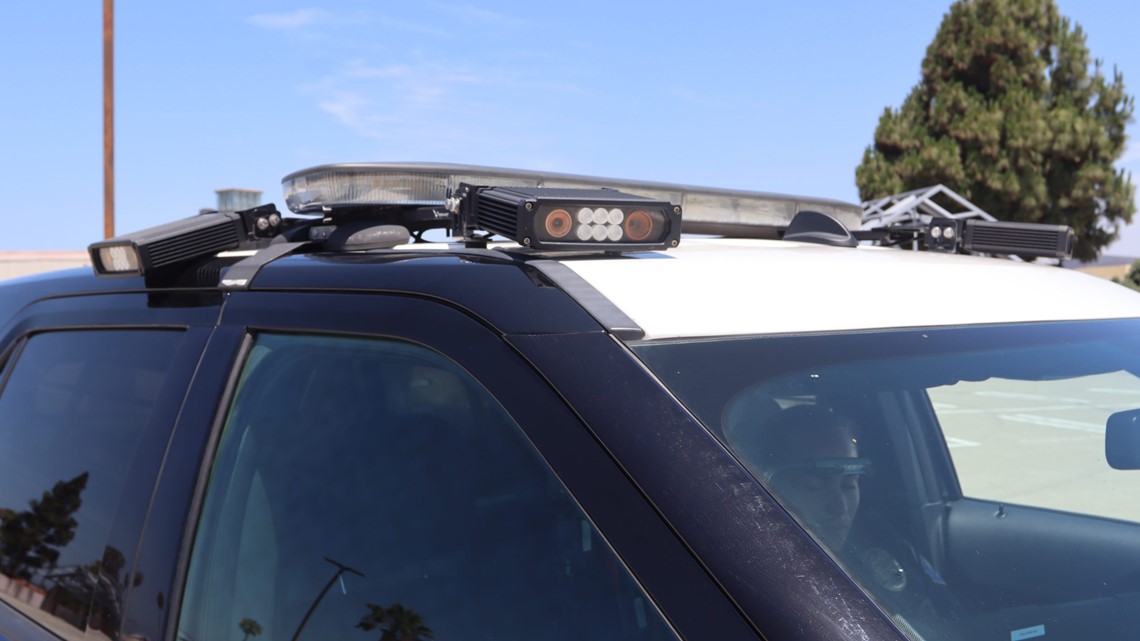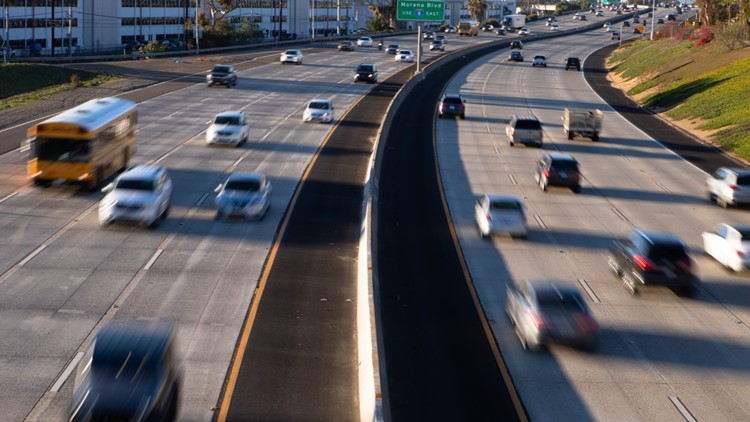SAN DIEGO COUNTY, Calif. — In response to an inewsource investigation published last month, all five police departments that were breaking the law by sharing drivers’ location data with other agencies across the country have decided to stop the illegal practice — at least for now.
Police in Escondido and La Mesa have joined Carlsbad, Coronado and Oceanside in only sharing data collected from automated license plate readers with other agencies in the state of California, as required by Senate Bill 34.
But La Mesa decided only to “suspend” the illegal practice effective Feb. 1, and Escondido officials said last week they will hit “pause” to review department procedures. Both agencies said they will let residents know if they decide to resume sharing data out of state.
The inewsource investigation revealed that half of the county’s 10 local law enforcement agencies had been illegally sharing license plate data with other agencies across the United States. Small police departments in states as far away as Florida, New York and Connecticut have been given access to location data from drivers in San Diego County.


Eight police departments are collecting the data from at least 300 cameras scattered throughout the county. The cameras capture every license plate that comes into view, including the time, date, location and sometimes a partial image of the vehicle. The data is automatically stored in a searchable database and shared with select agencies, and is supposed to be kept for only one year.
The cameras, and data they collect, offer law enforcement a powerful tool in identifying people who commit crime.
But when pieced together, the data can give the government an unrestricted view into the daily routines of drivers in San Diego County — from where they go to who they spend their time with.
That’s why state lawmakers in 2015 strengthened privacy protections for drivers and established strict rules for how police can use the technology, which includes keeping this private information inside the state of California.
It all comes down to an agreement these agencies have with a private company named Vigilant Solutions — the contractor most police agencies across the state use to collect and share the license plate data. As part of their agreement with Vigilant, agencies select who else can have access to the information collected by their cameras. They can choose to share data with every public safety agency that participates in the network, or on an agency-by-agency basis.
Whatever the decision, the company then generates a “data sharing report,” which includes an alphabetical list of every agency that has access to all of the data collected. Those reports revealed that five of the eight police departments collecting data in San Diego County had been sharing it with hundreds of agencies all over the United States.
State law says this data can only be shared with public agencies, which are defined in the law as agencies in the state of California.
Police in Carlsbad, Coronado and Oceanside removed all out-of-state agencies from their data sharing report after questions from inewsource but before the investigation was published in early January. Police and city officials in La Mesa and Escondido initially doubled down, defending the practice of sharing data out of state and claiming they weren’t doing anything wrong. Escondido’s city attorney, Michael McGuinness, sent an email challenging the accuracy of the investigation.
Both agencies have since changed course, but neither is ready to categorically end the illegal practice.
La Mesa police Chief Ray Sweeney decided to suspend the practice effective Feb. 1 “after reviewing (inewsource) articles and having discussions with our city attorney’s office and law enforcement colleagues,” a spokesperson said in an email.
Officials said they are waiting for the results of a pending lawsuit against the Marin County Sheriff, and if it becomes clear that law enforcement is encouraged to share this data out of state, they would consider resuming the practice.
The change came one week after inewsource requested a copy of any audit reports, conducted either in-house or by another agency, on the use of license plate readers. Officials said they didn’t have any records.
Insisting they sought oversight and input on surveillance technology before, La Mesa police officials instead pointed to informal reviews conducted internally, and to a time last June when a police captain presented to the Community Police Oversight Board a pilot program to place surveillance cameras in La Mesita Park.


Janet Castaños serves as chair of the Oversight Board, and she said she supports the chief’s decision to share this information with only in-state agencies.
Escondido police Chief Ed Varso said last week in an email that while he and the city attorney continue to disagree with inewsource reporting, he cares about maintaining trust in the community and has decided to pause sharing data out of state to review the department’s procedures.
“I believe that pausing the out-of-state sharing of license plate reader data strikes the appropriate balance of continuing to utilize technology to protect our communities from criminals while also protecting the privacy of our residents and visitors,” Varso said in the email.
“Information will be shared with the community should we decide to resume sharing our data outside of California.”
Varso also said the department will continue regular audits of its license plate reader program to ensure it aligns with policy and state law.
However, in response to a public records request, Escondido officials said the department does not maintain records of those audits.


It’s alarming that neither agency had any records of audits conducted on surveillance technology, said Geneviéve Jones-Wright, a prominent criminal justice reform advocate and executive director of Community Advocates for Just and Moral Governance. Without those records, the public can never be sure the police are holding themselves to high standards.
“There has to be a way for us to understand if the government and these law enforcement programs actually work,” she said.
inewsource is a nonprofit, independently funded newsroom that produces impactful investigative and accountability journalism in San Diego County. Learn more at inewsource.org.



